Cat feeding problems often concern cat owners. Often, people who provide their cats with a healthy diet, tempting food choices and tender loving care will still find themselves dealing with a finicky cat. While some cats simply enjoy their food one day and decide they hate it the next, other cats who appear to be picky eaters may be suffering from an underlying health problem, such as gum disease. Therefore, it’s important to try to understand why your cat is exhibiting problems at mealtime.
Finicky Cats and Food Attraction
Food draws cats in by enticing several sensory levels, including the following:
- aroma
- taste
- temperature
- texture.
A finicky cat can develop an aversion to any of the above. For example, the food may be too cold, or it may smell displeasing. The texture could be off, or your cat may simply have been expecting a food to taste differently. The latter is especially true if you have been feeding your cat a variety of foods.
If your cat is a picky eater, speak with your vet to rule out possible health issues. Cats can certainly develop an allergic reaction or intolerance over time, even from familiar foods. An allergy will bring on symptoms such as itching, wheezing and discomfort. Diarrhea and vomiting are often direct results of a developed intolerance.
In addition, your cat could be suffering from mouth sores, a cracked tooth or a number of other health conditions. If your vet determines your cat has stopped eating due to a health issue, treating the underlying cause will generally improve your cat’s appetite for food.
Fatty Liver Disease
Cat owners should be aware of the fact that cats can quickly develop a potentially fatal disorder if they cease eating. Hepatic lipidosis, or “fatty liver disease,” occurs when the liver collects fat to produce energy in the absence of food. This metabolizing effect can occur in as little as 48 hours or less.
If you see these symptoms in your cat, contact your vet or emergency animal clinic as soon as possible:
- reduced appetite or complete anorexia (refusal to eat)
- abdominal swelling
- depression
- diarrhea
- epilepsy
- jaundice (most obvious as a yellowing of the eyes, ears and gums)
- lethargy and irritability
- vomiting
- weight loss.
Causes for Picky Cat Eating Behavior
Once you rule out any health condition or illness, pinpoint possible causes and solutions for your cat feeding problems. A picky cat can become a problem eater for many reasons. Here’s a list of some common factors that can lead to problematic eating behaviors:
Change in Routine: Cats truly are creatures of habit. Even minor changes can cause them stress, contributing to food refusal. The list of triggers is long but includes:
adjusting to a relocation of furniture or a new eating space
being boarded while the owner is on vacation
dealing with a new pet in the household
dealing with temperature extremes, especially in the summer.
Constant Food Rotation: You may believe that it’s good to provide a mix of food for your cat. However, too much variety can create finicky eaters. If your cat knows he has a variety of food from which to choose, he may avoid eating one meal in anticipation of getting something better at the next feeding.
Sneak Eating: Sometimes, family members contribute to the feeding problem by giving a cat unauthorized food. A child may slip tidbits under the table during a meal, for instance.
Your cat can also exhibit some sneaky traits on his own. He may be rummaging through open trash containers, both inside and out.
A few other causes could be the root of your cat’s finicky behavior, including:
His bowl is not clean or needs to be rinsed: A feline’s nose is ultra-sensitive and can detect soap residue or stale food remnants.
His food has gone bad: You may not be able to tell, but sometimes fats become rancid, affecting the odor.
His food is too cold: Many cats won’t eat refrigerator-stored food until it comes to room temperature or is warmed.
Solutions for Cat Feeding Problems
Eliminating free feeding is one of the first solutions suggested for finicky cats. It’s true that cats are nibblers. They tend to eat a little at one sitting and then return at varying times throughout the day to eat some more. If this is becomes a problem, however, you might try scheduling mealtimes.
At mealtime, prepare the type of food your cat seems to enjoy the most. If it remains untouched, remove it after 30 minutes. Repeat at the next scheduled mealtime.
Along with scheduling meeting times, consider giving your cat a quiet place to eat. Sometimes the stresses of family activity contribute to a loss of appetite. If several pets reside in the home, this also creates a competitive environment. Feeding separately also lets you better observe your cat’s behavior.
Another tip is to try introducing a new high-grade food into your cat’s routine. However, changing over to a completely new diet quickly can cause intestinal distress. Therefore, it’s best to make the transformation gradually. If you’re trying to incorporate wet food, adding a little canned food to dry kibble may start the process. Likewise, if you are trying to introduce kibble, adding moistened nuggets to wet food over the course of several days or weeks can help with the transition.
If you are switching from a dry food to a dry food or a wet food to a wet food, mix a small amount of the new food into the old kind. As the days pass, gradually increase the amount of the new food until it completely replaces the old food.
Preventing Finicky Cat Behavior
Most experts agree that cats by nature are not finicky. These habits develop most often through poor choices in food offerings and routines.
Most high-quality commercial food products provide all the nutrients your cat needs. Starting out right with a proper kitten diet, then changing gradually to adult food at the appropriate time is one of the best ways to promote healthy, regular eating.
Avoiding the temptation to provide people food is a second factor to consider. An occasional treat, such as cooked chicken, is generally harmless. A regular offering of table scraps, though, can create a nutritional imbalance that leads to health problems. This habit also directly impacts feline obesity, which produces a finicky cat while also contributing to a shorter lifespan.

Hi, I’m Jodie! I’m a spain-Moroccan writer with a passion for imagination, adventures, magic and stories with heart.
Please don’t hesitate to contact me for any questions, suggestions, comments or feedback.

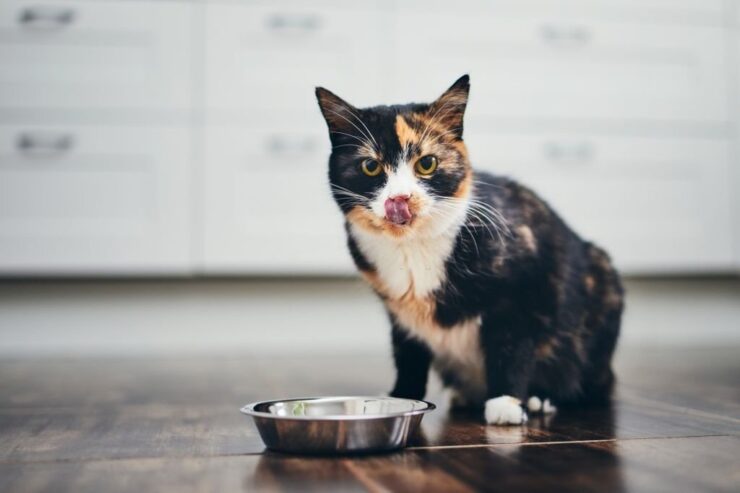


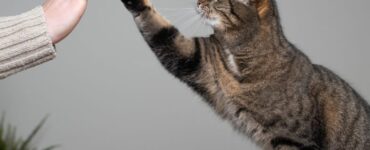
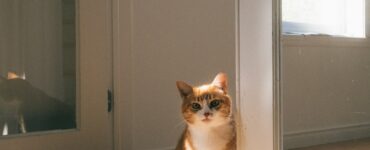
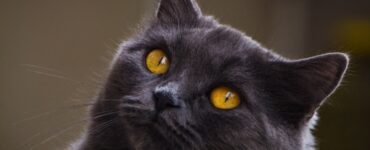
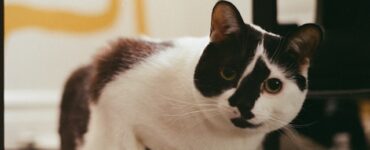









Add comment